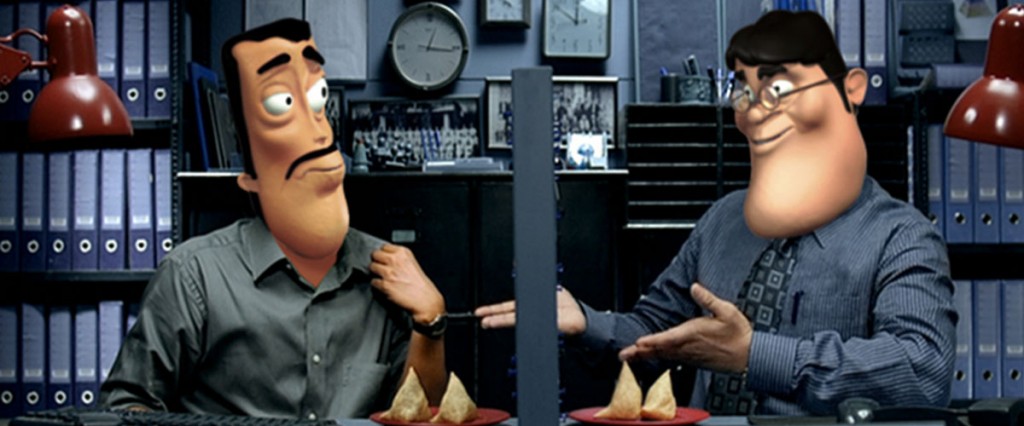 “Carrots are good for health and at Invisible Rabbit we treasure them.
“Carrots are good for health and at Invisible Rabbit we treasure them.
A good creative is like a good carrot; juicy enough to sustain interest and healthy enough to pay the bills. So bring it on.” With this motto, Nupur Bhargava, director of Invisible Rabbit Studios spoke to AnimationXpress.com’s Niyati Handa on what makes them different from other animation studios and their future projects.
Why did you name the studio ‘Invisible Rabbit’?
We liked the whole story of Alice in Wonderland and the rabbit, who navigates the story; we found that concept very interesting; and we chose to be invisible because animators anyway are known to work behind the camera rather than in front of it. What you see on screen is the character that is being animated so that’s the origin of the name Invisible Rabbit, we are doing are work quietly and burrow our way through.
What kind of work is the studio involved in? What’s your USP?
 We are a boutique studio; we started six years back in a one room space. Our main focus has always been designs and direction; these are the things which make us different from other animation studios.
We are a boutique studio; we started six years back in a one room space. Our main focus has always been designs and direction; these are the things which make us different from other animation studios.
We do all kind of work, depending on the client’s requirement. Once the client gives us a brief of the project and concept, we accordingly figure out whether the project should be executed using 3D, 2D, stop motion animation or even combining them.
We don’t have a lavish office place, neither are we a large team, but we have fine artists who work on project basis and deliver quality well within set timelines. We have a team specialising in 2D as well as 3D animation, so as and when a project comes by we can meet the requirement of the project.
How do you ensure that any project that you take up is financially viable?
For each project we ensure that we keep a certain budget aside for the infrastructure and softwares that we would require to procure. In the animation Industry, big companies fire people when there is a loss, in our case most of our team members are free lancers, so we never have to face such anomalies. We coordinate with artists from various cities with the help of tools like Team Viewer when required. We only buy licensed softwares like Maya and Adobe Suits.
We take up assignments only if they interest us and are financially beneficial to a certain extent, at the end of the day we are running a business and can’t afford to run into losses, even if we don’t end up making profits.
What kind of challenges or hurdles do you face?
This industry is a people oriented business and its very important that everyone in the team be it the animation artist, rigging artist or the lighting artist have to be on the same page at all times.

We believe in doing our ground work and pre-visualise things much in advance to avoid any glitches, though things are difficult at times, but nothing is impossible. It’s not always important to have big studio with 50 people around you. You don’t require many people to achieve things, if you know what you want, you should plan enough and co-ordinate well.
We don’t face any problem as such; we have a very good team. There is one senior animator onboard, who has been in this field for over 20 years, for him working with me is not about the fact that we pay him on time; we respect each other as individuals and professionals and that’s what is most important.
What kind of work have you been involved with recently?
We have just finished a promo video for ‘Kahani Masters’, a contest that Disney India is running along with Toonz Animation. It was a good experience; we had a total of five people involved in executing the video. Currently, we are working on some interesting concepts. We will definitely do short films in future, I am also writing stories for the same. We are over a billion Indians, so we should at least have half a million animation films every year! What say?
What are your final thoughts on the current state of the animation industry?
The worrying factor for me is that there is no stability in the industry, there are studios opening and closing everywhere all the time, this takes a toll on the overall growth of the industry. Another major hurdle that Indian animators face is that the audience is not mature enough to increase consumption of animation, which is not the case in developed markets like Japan and US.
India has been in animation for long now, all we need to do is create a lot more home grown content, rather than only depending on outsiders. We should do animation in such a way that even youngsters of this country show keen interest in getting into the space.
